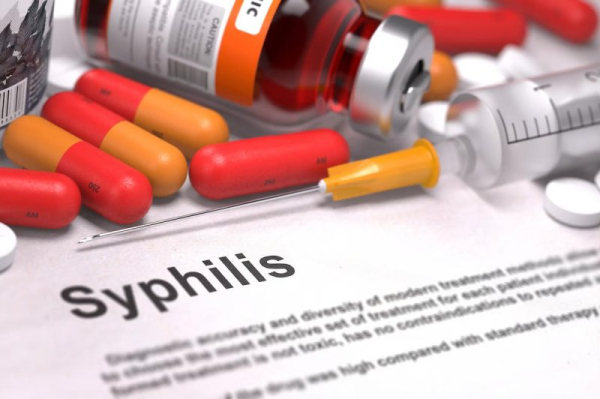
The epidemic of sexually transmitted infections (STIs) in the United States appears to be cooling off after more than two decades, a new Centers for Disease Control and Prevention (CDC) study says. Photo by Adobe Stock/HealthDay News
The epidemic of sexually transmitted infections (STIs) in the United States appears to be cooling off after more than two decades, a new Centers for Disease Control and Prevention (CDC) study says.
Gonorrhea cases dropped for a second year in 2023, declining 7% and falling below pre-pandemic levels, researchers say. Advertisement
And syphilis cases increased by 1%, after years of double-digit growth.
“I see a glimmer of hope amidst millions of STIs,” Dr. Jonathan Mermin, director of the CDC’s National Center for HIV, Viral Hepatitis, STD, and TB Prevention, said in a news release.
“After nearly two decades of STI increases, the tide is turning,” he continued. “We must make the most of this moment — let’s further this momentum with creative innovation and further investment in STI prevention.”
However, STIs remain widespread in the United States, researchers found.
Compared to 20 years ago, more than a million more STIs were reported annually in 2023, the study shows.
Last year, nearly 4,000 U.S. babies were born with syphilis. There was a 3% increase in newborn syphilis cases, which is an improvement given the 30% annual increases seen in prior years, experts said. Advertisement
It also appears that increases in newborn syphilis appear to be slowing in some parts of the U.S., researchers said.
Cases of the most infectious stages of syphilis, primary and secondary syphilis, fell 10% in 2023, the first substantial decline in more than two decades, researchers said.
Cases of syphilis also dropped 13% among gay and bisexual men, the first decrease since the mid-2000s when the CDC began tracking trends among them.
CDC experts said the decreases follow important developments and innovations in STI prevention, such as:
New guidelines for using doxycycline after exposure to bacterial STIs, to prevent infection.
Newly approved at-home tests for syphilis, gonorrhea and chlamydia.
A nationally coordinated response to the U.S. syphilis epidemic spearheaded by a federal task force.
However, the CDC said efforts to develop new prevention, testing and treatment solutions for different groups in the U.S. need to continue, along with increasing local access to STI testing and services.
The U.S. Centers for Disease Control and Prevention has more about doxycycline PEP.
